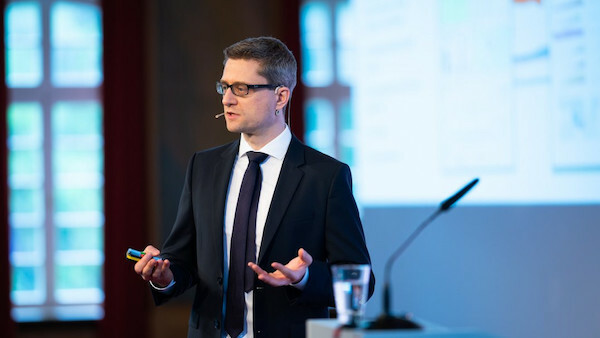This is a profile from the 2020 version of the DataIQ 100.
The 2021 list is available here
Philipp Diesinger, head of global data science, Boehringer Ingelheim

Path to power
I have worked as a data scientist in the life science industry since 2009, including a post-doctoral position at the Massachusetts Institute of Technology. In 2014, I joined SAP Data Science Consulting, where I developed smart data science solutions for global players, as well as scaled up the data science team’s life science engagements.
I first joined Boehringer Ingelheim in November 2015, initially as chief data scientist before taking on my current role. I have since been driving the data science efforts of the company, leading a global team of quant level data scientists working across all business functions with significant impact on the organisation.
What is the proudest achievement of your career to date?
Together with my team, I have demonstrated significant impact on the top and bottom line for Boehringer Ingelheim, by improving the company’s marketing efforts, payer relations, global supply chains, optimised pricing strategies, business steering and clinical operations. We have found new approaches to utilise artificial intelligence in healthcare and demonstrated significant impact through the “Angels Initiative”, a programme to improve stroke care across Europe, in collaboration with the WSO and ESO. Up to May 2019, the scheme had saved over 100,000 lives.
Who is your role model or the person you look to for inspiration?
We encounter a finite number of individuals throughout our lifetimes and I believe that it is possible to learn something from every single one of them if one pays attention and observes well.
The list of brilliant people that I look up to and learn from is long and it seems very hard to pick someone specific. They include technology and business leaders, historic mathematicians and scientists, as well as intellectuals and leaders of fields that have not much in common with data analytics such as psychology, historians, masters of story-telling, screen writers, and many others.
Did 2019 turn out the way you expected? If not, in what ways was it different?
It was surprising in the way data science and data analytics accelerated their impact on the global economy. Many experts were expecting a cooling down effect of the industry, but it did not occur. We have seen continued milestone achievements every two to three months, many of which were nothing short of spectacular.
What do you expect 2020 to be like for the data and analytics industry?
The field of data science is still developing at a rapid pace. I expect we will see new milestones being set, pushing the boundaries of artificial intelligence, where several use cases are close to a breakthrough. Furthermore, data technology will continue to develop. The global need for data processing and analytics is still accelerating as well. By the year 2025, it is expected that 20% of global energy consumption will be dedicated to data processing alone.
In 2020, data science and analytics will lead to further disruptive events across several industries, including healthcare and the pharmaceutical industry. Business models around the globe will continue to change. Furthermore, the impact on the democratic process is likely to continue in 2020. The data privacy problem will remain only partially solved.
Data and technology are changing business, the economy and society – what do you see as the biggest opportunity emerging from this?
As humans, our decision making is fundamentally rooted in our intuition and expertise which in turn is a product of our (limited) experiences. Enhancing our decision making with massive amounts of data, reflecting the learnings of thousands or tens of thousands of human lifespans is possible for the first time in human history on a large scale, and has already started to show significant impact on outcomes.
This affects economic and business decisions but also opens new opportunities for steering the way we live together in our communities and societies. Given the massive challenges humanity will be facing over the coming decades, data-driven and scientific decision making might hold a key to navigate the rough waters ahead.
What is the biggest tech challenge you face in ensuring data is at the heart of your digital transformation strategy?
One of the biggest tech challenges is the handling of legacy systems, especially in corporate environments where several factors hinder establishing and maintaining a modern data infrastructure.
These factors include technological developments happening at a fast pace; a high degree of uncertainty with key decision makers; a slow shift in mindset from traditional business decision making to data-driven decision making; and a high level of complexity when replacing data infrastructure with the risk of disruption.
DataIQ is a trading name of IQ Data Group Limited
10 York Road, London, SE1 7ND
Phone: +44 020 3821 5665
Registered in England: 9900834
Copyright © IQ Data Group Limited 2024